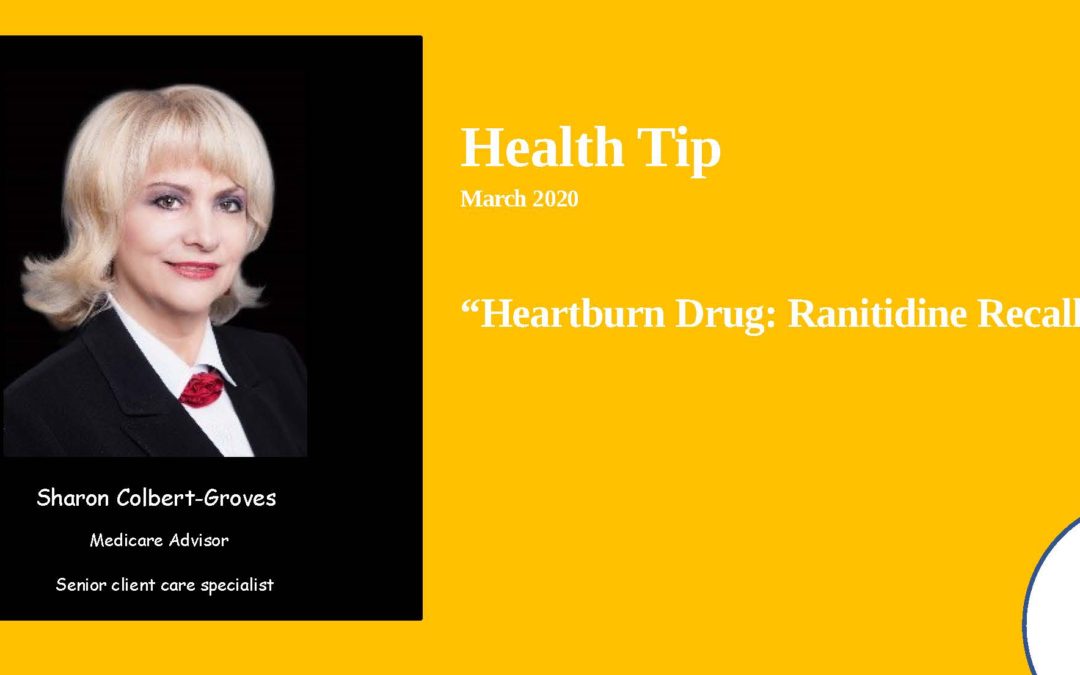Many have heard that the FDA found a substance (NDMA-N-nitroso dimethylamine) in Ranitidine that may cause cancer. Full details are not yet known, but the story continues to unfold. Ranitidine is available by prescription, and Zantac, which is the brand name, is available over the counter. These meds are very popular to relieve/prevent heartburn, as well as prevent ulcers in the stomach.
Neither the FDA nor Novartis nor Apotex (Canadian Pharm- aceutical) have received any reports of cancer cases. It is thought it may be classified as a possible carcinogen only after exposure to high doses over long periods of time and if meds are exposed to high heat.
Prilosec (Omeprazole), Prevacid, Pantoprazole, and Nexium are also used for ulcers, heartburn, and gastroesophageal reflux disease (GERD). They are in a class of drugs called H2 (histamine blockers). Prilosec works differently from Zantac. Prilosec blocks production of acid by the stomach while Zantac blocks production of acid by producing acid-blocking cells in the stomach. Some foods that aggravate heartburn are fatty foods, spicy foods, tomato-based sauces, alcohol, carbonated beverages, caffeine, and chocolate.
What should you do? World agencies and the FDA continue to investigate any possible carcinogenic effects in people who take Ranitidine or Zantac. Meanwhile, the FDA is NOT calling for people to stop taking the medication. Some people have gone back to “old” favorites such as Tagamet, Rolaids, or Pepto-Bismol. Some home remedies that can provide relief for indigestion are Peppermint or Chamomile tea and diluted Apple Cider Vinegar.
Many patients who start these meds, never stop them and they still may not be needed.
This is a good time to discuss this with your doctor and see if there are other alternatives you could take if you’re experiencing heartburn or stomach ulcers
Content sourced from: Harvard Health Medical School / MedicineNet/Univ of Virginia

